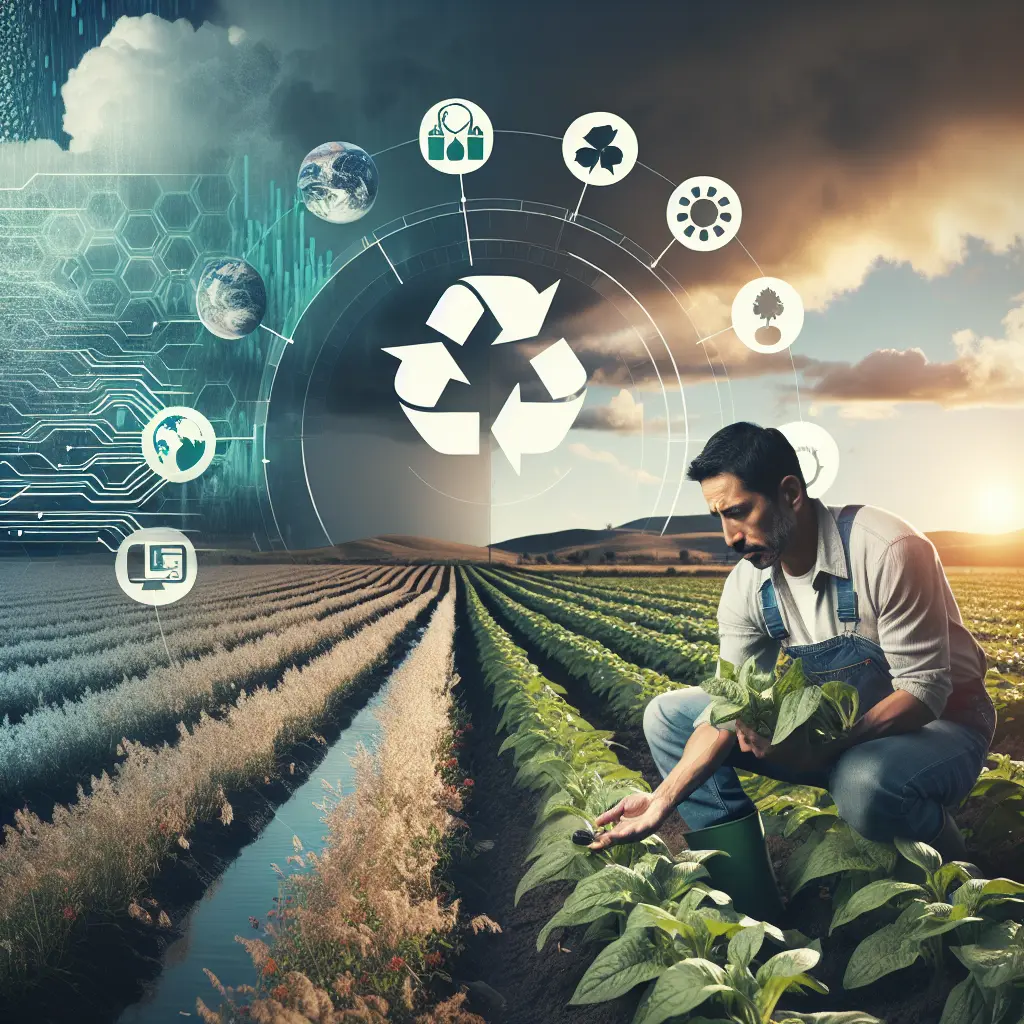
Rethinking Our Agricultural Practices for a Greener Future
Agriculture is an integral part of human survival, yet it stands as one of the most significant contributors to climate change. As we face mounting environmental challenges, it's crucial to reassess and innovate our agricultural practices to align with sustainable and green living goals.
Globally, agriculture contributes a substantial portion of greenhouse gas emissions, particularly from livestock farming, which accounts for 10% to 20% of these emissions. This impact is exacerbated by the immense water consumption required by agricultural activities—an alarming 70% to 85% of total human water usage.
So, how can we transform agriculture to support a sustainable future without compromising our food security? Here are some strategies and considerations:
Adopt Sustainable Farming Techniques:
- Implementing crop rotation and polyculture can improve soil health and reduce dependency on chemical fertilizers and pesticides.
- Conservation tillage helps maintain soil structure, minimizes erosion, and sequesters carbon.
Innovate Livestock Management:
- Reducing livestock numbers and improving feed efficiency can significantly cut methane emissions.
- Integrating livestock with crop systems can optimize resource use and reduce waste.
Embrace Technological Advancements:
- Precision agriculture uses technology such as GPS and IoT devices to optimize resource use, increasing yield while minimizing environmental impact.
- Vertical farming and hydroponics are emerging as viable options for urban areas, reducing land use and water consumption.
Promote Plant-Based Diets:
- Shifting consumer demand towards plant-based products can decrease the environmental footprint of food production.
- Encouraging diverse diets that incorporate more plant proteins can alleviate pressure on livestock farming.
Support Policy Changes:
- Advocacy for policies that promote sustainable agricultural subsidies and research funding is crucial.
- Governments can incentivize practices that reduce emissions and conserve water.
In our pursuit of sustainable agriculture, collaboration across sectors—government, private industries, farmers, and consumers—is essential. We must push for innovation, support environmentally friendly policies, and embrace sustainable habits in our daily lives.
By rethinking and reshaping our agricultural practices today, we can build a resilient food system that supports both our planet and our people. Let’s work together to cultivate a future where green living and sustainability are at the heart of agriculture.
For more insights into sustainable agriculture practices, you can refer to this article.
Together, let's nourish the earth while nourishing ourselves.
Warm regards on this journey to sustainability,
Jenna Walsh